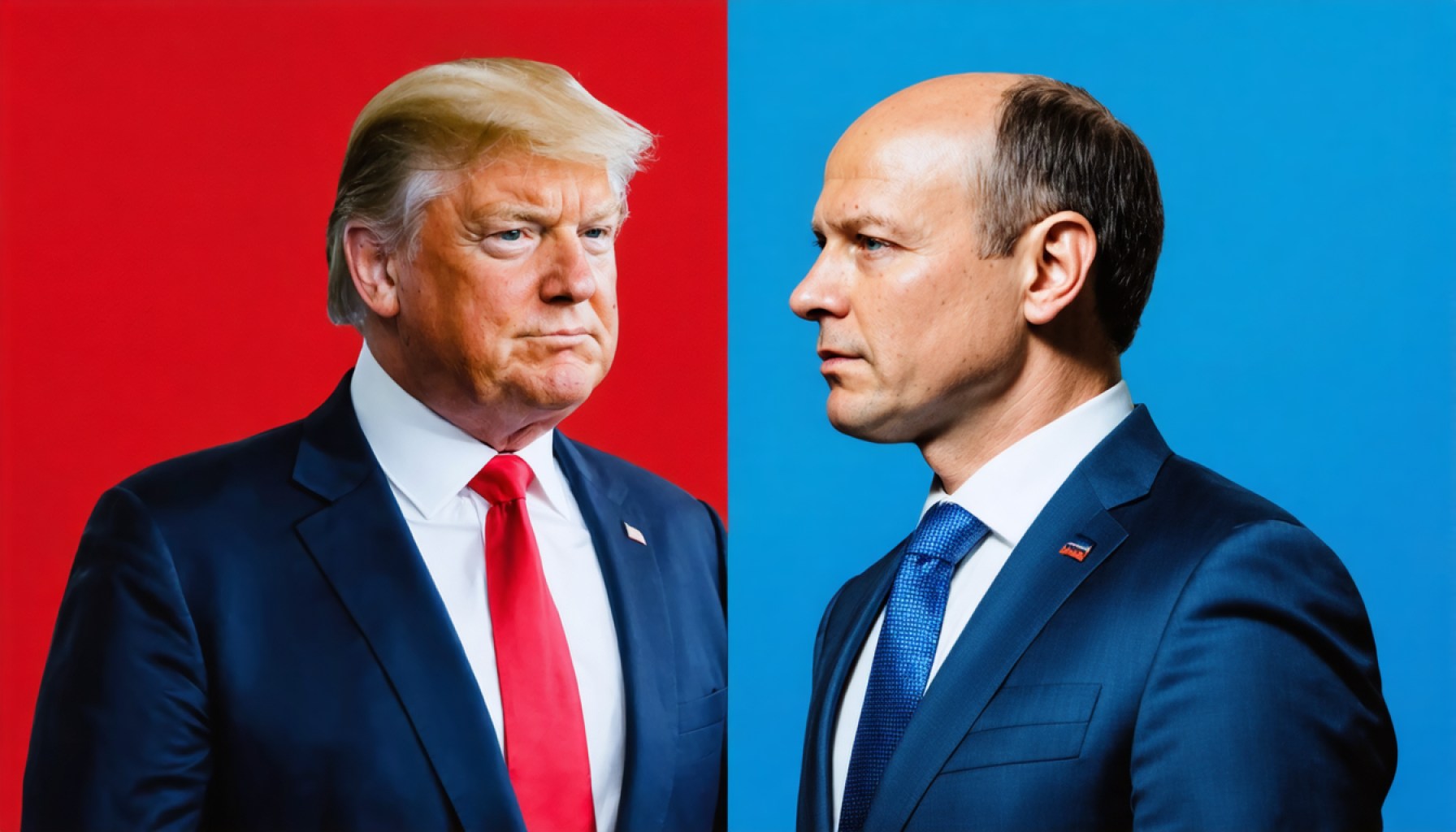- In a crucial election, Friedrich Merz and Olaf Scholz vie for Germany’s leadership, each bringing distinct styles and backgrounds.
- Merz displays leadership qualities but faces challenges within the CDU to prevent repeating past electoral errors.
- Scholz surprises with newfound confidence and rhetoric, challenging his critics and showcasing his ministerial experience.
- Filmmakers Mathis Feldhoff and Andreas Huppert explore their political journeys in “Kanzler und Herausforderer – Scholz und Merz im Wahlkampf.”
- Scholz, with a seasoned political history, contrasts with Merz’s unique trajectory through law and industry.
- Key themes include electoral transformation, leadership transformation, and ambition.
- The outcome will shape Germany’s future, amid a changing landscape of leadership and political dynamics.
In a nation bracing for a pivotal election, two vastly different candidates strive to captivate the German electorate. On one side stands Friedrich Merz, known for his brash impatience, yet striving to exude an aura of steady leadership. Meanwhile, from the shadows of restraint, Olaf Scholz emerges with newfound vigor, wielding sharp rhetoric and a determined stance. The political arena becomes their stage, each move documented by filmmakers Mathis Feldhoff and Andreas Huppert, who delve deep into the psyches of these titans in “Kanzler und Herausforderer – Scholz und Merz im Wahlkampf.”
Germany watches as Scholz and Merz embark on a transformation, revealing facets of their personalities unseen by the public eye. Scholz, often overshadowed by his unpopularity, unexpectedly showcases a confidence that unsettles his critics. In contrast, Merz’s ambitious resurrection within the CDU is tested, hoping to prevent a repeat of past electoral missteps.
Their backgrounds offer stark contrasts: Scholz, seasoned by ministerial experience, has navigated the complexities of coalition governance. As Hamburg’s First Mayor and later Germany’s Chancellor, his tenure under Merkel’s grand coalition and subsequent helm of the Ampelkoalition might have been fraught with challenges, yet it equips him with unparalleled experience. Merz, conversely, has woven a unique path through law and industry, marked by both setbacks and striking returns to political prominence.
As Germany’s decision day looms, the electorate is left to ponder: Can Merz maintain his lead, or will Scholz’s metamorphosis sway enough hearts? This unfolding drama not only defines Germany’s future but reflects a broader narrative of redemption, ambition, and political transformation. Amidst uncertainty, one truth remains: the landscape of leadership is changing, and with it, the prospects for a nation awaiting its next chapter.
The High-Stakes Battle: Inside Germany’s Defining Election Drama
Understanding the German Political Election Landscape
The German political landscape is in the throes of a compelling election saga, highlighted by the head-to-head rivalry between Friedrich Merz and Olaf Scholz. Their differing backgrounds and approaches define the electoral climate, with consequences not just for Germany but the wider European political order. Let’s delve into the key areas that further illuminate their clash and its broader implications.
Differences in Leadership Styles and Backgrounds
Olaf Scholz: A Seasoned Political Operator
Olaf Scholz’s political journey is marked by his extensive ministerial experience, which includes serving as Germany’s Vice Chancellor and Minister of Finance. His political career spans several decades, with notable achievements in strengthening Germany’s financial regulations and steering EU discussions on taxation and economic policy.
Real-World Impacts:
– Scholz’s experience with coalition governance, especially under the Merkel-led grand coalition and the current “Traffic Light Coalition,” positions him as a potentially stabilizing force for continuity.
– His proactive response to economic challenges often emphasizes pragmatism and stability, appealing to centrist voters.
Friedrich Merz: The Comeback Politician
Merz, a veteran lawyer and business executive, represents a more conservative approach. His return to the forefront of politics has been characterized by a vision for economic growth and structural reform within Germany’s political system.
Real-World Impacts:
– Merz’s business acumen is seen as a strength in advocating for economic competitiveness and policies favoring market liberalization.
– His leadership style, however, can come across as abrasive, posing obstacles in building broad-based coalitions.
Industry Trends and Market Forecasts
Political Implications on German Economy:
– Industrial Policy: Scholz may favor continuity in key sectors like automotive and manufacturing, losing no time in implementing green technologies. Merz might introduce extensive reforms aimed at deregulation and business incentives.
– Energy Transition: With Germany’s commitment to renewable energy, Scholz could push for tangible investments in the green sector. Merz may advocate a more cautious transition, considering energy security.
Security and Sustainability
Security Policies:
– Scholz is likely to align closely with European and NATO partners, emphasizing multilateral approaches to global security issues.
– Merz could advocate for stronger national defense policies, including heightened investments in military capabilities.
Sustainability Initiatives:
– Scholz’s tenure could advance strong climate policies with tangible commitments to emissions reduction.
– Merz, while also supportive of sustainability, might prioritize cost-effective measures and gradual transition strategies.
Pros & Cons Overview
Olaf Scholz:
– Pros: Experienced administrator, focus on stability, continuity with past policies.
– Cons: Can be perceived as too bureaucratic and potentially unresponsive to rapid change needs.
Friedrich Merz:
– Pros: Strong economic vision, fresh leadership with a focus on reform.
– Cons: Potentially divisive, risk of alienating centrist and liberal voters.
Actionable Recommendations
– For Investors: Pay close attention to candidates’ economic policies; changes in the administration could signal alterations in Germany’s fiscal landscape, especially in the industrial and digital sectors.
– For Voters: Review policy goals focusing on economic stability, climate initiatives, and international relations to make an informed decision.
– For Observers: Use this election as a lens to understand broader European Union shifts, especially regarding economic governance and regulatory changes.
Germany stands at a crossroads, where the choice between Scholz and Merz could redefine its role in Europe and influence global geopolitical dynamics. Each candidate brings a distinct vision and set of policies that will shape the nation’s future on multiple fronts.
For more insights into Germany’s political and economic scene, visit Deutsche Welle.
